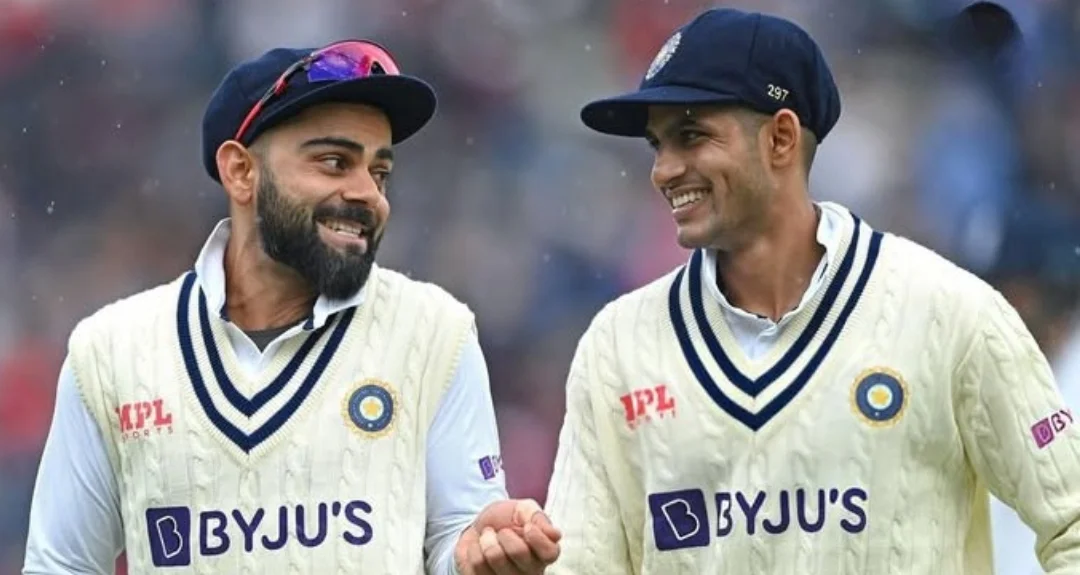A Record Rewritten Without the Noise
Cricket doesn’t always announce its milestones with fireworks. Some arrive quietly, defined not by celebration but by significance. Shubman Gill’s latest feat falls into that category.
In India’s ongoing Test tour of England, Gill scored his fourth century of the series, becoming the first Indian captain to achieve four centuries in a single overseas series. In doing so, he moved past Virat Kohli’s mark of three centuries as captain during the 2014–15 tour of Australia — a record that had remained untouched for nearly a decade.
What makes this more compelling is how little attention it has received.
Gill Joins Rare Company
In Test cricket’s long history, only a few captains have managed this: Sunil Gavaskar, Sir Donald Bradman, and Michael Clarke. That’s the level we’re talking about here — yet the reaction has been muted.
There’s no doubt that Kohli’s Australia tour was iconic — emotionally charged, technically sound, and deeply influential. But what Gill has done in England, amid swinging conditions and relentless scrutiny, deserves its own space, not as a comparison, but as a milestone worth recognising on its own merit.
Captaincy in the Background, Bat in the Foreground
This is Gill’s first full assignment as India’s Test captain. A tour of England is not a gentle introduction — it’s a trial by weather, discipline, and Duke’s ball movement.
Yet across four Tests so far, he has produced scores of 127, 103, 114, and 100 not out — each innings different in tone, but all showing the same temperament: measured, aware, and technically assured.
These weren’t hundreds made on flat subcontinent tracks or in low-stakes matches. They were made under cloud cover, against experienced bowling attacks, and in situations where a misjudgment could have turned the game.
Leadership Without Drama
There’s something quietly compelling about the way Gill leads. He doesn’t appeal to aggression. He doesn’t speak loudly, nor does he dominate attention. But he does lead through choices, through clarity, and through performance.
Where many leaders have made their mark with body language, Gill is doing it with composure and precision. And in a time when cricket often leans into theatrics, there’s a certain reassurance in watching a young captain choose substance over style.
More Than Just a Century Count
Yes, records matter — but they mean more in context. Scoring a century overseas is always a mark of quality. Doing so four times in a series, while also managing the mental and tactical demands of captaincy, points to something deeper than form. It points to readiness.
Gill’s performances haven’t just lifted scoreboards — they’ve steadied dressing rooms. He’s built innings when India was in trouble, and capitalised when momentum was on their side. The range has been impressive, and so has the timing.
What It Signals
This isn’t a passing moment of brilliance. It could be the start of a new leadership chapter for Indian cricket — one that looks different from its predecessors, but no less effective.
There’s still a long road ahead. England isn’t the final test, and captaincy is a long game. But Gill has already shown he can carry the responsibility without letting it weigh him down.
Final Word
Records don’t always need noise. Some are powerful because of how quietly they arrive. Gill didn’t punch the air or scream into the void. He raised his bat, nodded, and moved on.
But that doesn’t make it any less important.
In an era of big moments and louder reactions, Shubman Gill’s calm, assured run through England offers something different — a reminder that greatness doesn’t always announce itself.
Sometimes, it simply shows up — bat in hand, head down, doing the job.
For more updates, visit sportupia.com

